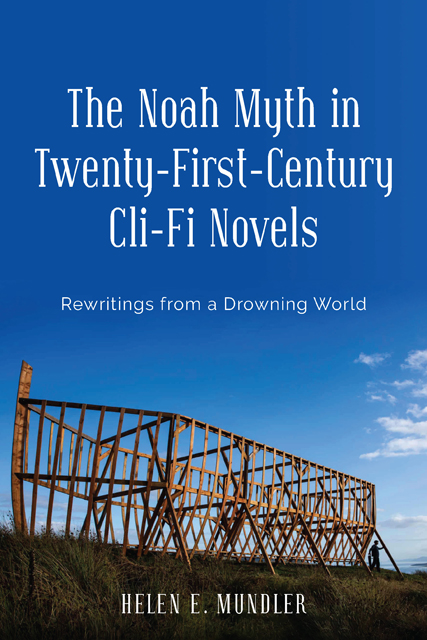Book contents
- Frontmatter
- Dedication
- Epigraph
- Contents
- Acknowledgments
- List of Abbreviations
- Introduction
- 1 An Odd Sort of Cli-Fi? Nathaniel Rich’s Odds Against Tomorrow
- 2 “Hadn’t mankind done it before—started from scratch?” Reinterpreting Visions of Past and Future in Margaret Atwood’s Maddaddam trilogy
- 3 Watering Down? Clare Morrall’s When the Floods Came
- 4 The Archive and After: A Kaleidoscopic Reading of Maggie Gee’s The Flood
- Conclusion
- Works Cited
- Index
Conclusion
Published online by Cambridge University Press: 17 December 2022
- Frontmatter
- Dedication
- Epigraph
- Contents
- Acknowledgments
- List of Abbreviations
- Introduction
- 1 An Odd Sort of Cli-Fi? Nathaniel Rich’s Odds Against Tomorrow
- 2 “Hadn’t mankind done it before—started from scratch?” Reinterpreting Visions of Past and Future in Margaret Atwood’s Maddaddam trilogy
- 3 Watering Down? Clare Morrall’s When the Floods Came
- 4 The Archive and After: A Kaleidoscopic Reading of Maggie Gee’s The Flood
- Conclusion
- Works Cited
- Index
Summary
This book has taken a fresh look at a corpus of rewritings of the Noah myth, proposing original and innovative readings based on ideas such as intergenerational trauma, which is not usually mentioned in relation to Mitchell Zukor in Nathaniel Rich’s Odds Against Tomorrow, and the deployment of children’s literature as an intertextual framework in Clare Morrall’s When the Floods Came. It has also emphasized aspects of Margaret Atwood’s much-analyzed trilogy that have not previously been highlighted, taking further the commentary of previous critics on the decentering of the human, the rise of ultra-liberalism and the deployment of the uncanny, and has proposed an innovative kaleidoscopic reading of Maggie Gee’s The Flood.
To recapitulate, the thrust of this book is that these literary novels need to be read in ways that allow their multifaceted nature to be acknowledged. The novels discussed here are not “ecothrillers,” to use Richard Kerridge’s definition: they do not lack nuance, or fail to acknowledge complexity in their exposition of character: rather, they correspond to the criteria Kerridge uses to define the realist novel, which is “traditionally valued for the leisure it seems to have; the humaneness of the care with which it can watch people and acknowledge their complexities” (2008, 244).
But while the novels discussed here do indeed acknowledge the complexities of their characters, the results of climate change can be dehumanizing, as Mitchell and Jane find out when they end up in the FEMA camp in Odds Against Tomorrow: disasters reduce individuals to bodies to be saved, mouths to be fed, numbers to be accommodated. Against this neutralizing process, the one-off stories, the threads that are not common to Every(wo)man but particular to one distinct and flawed individual, reverberate all the more. These novels allow their characters contradictions, and they allow dissonance to resonate: the survivors of extreme climate change events are not necessarily exemplary human beings, and reading for a blueprint of what to do, or how to solve the problems with which humankind is confronted in the Anthropocene, is generally a frustrating process.
- Type
- Chapter
- Information
- The Noah Myth in Twenty-First-Century Cli-Fi NovelsRewritings from a Drowning World, pp. 113 - 116Publisher: Boydell & BrewerPrint publication year: 2022

